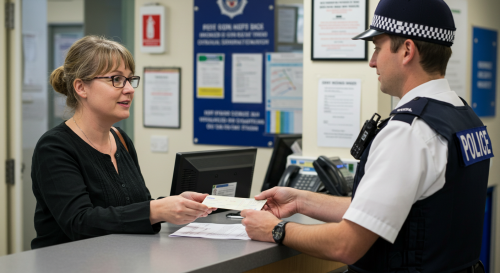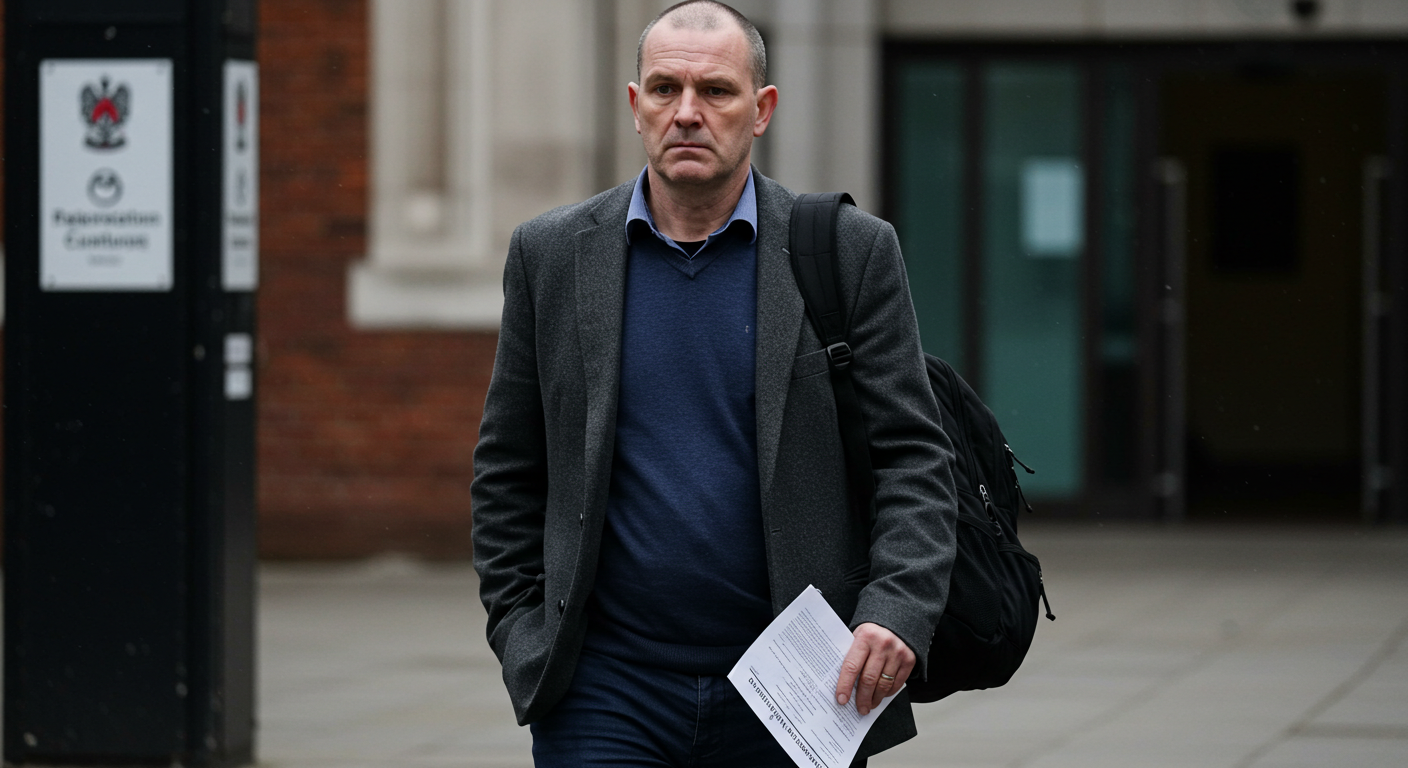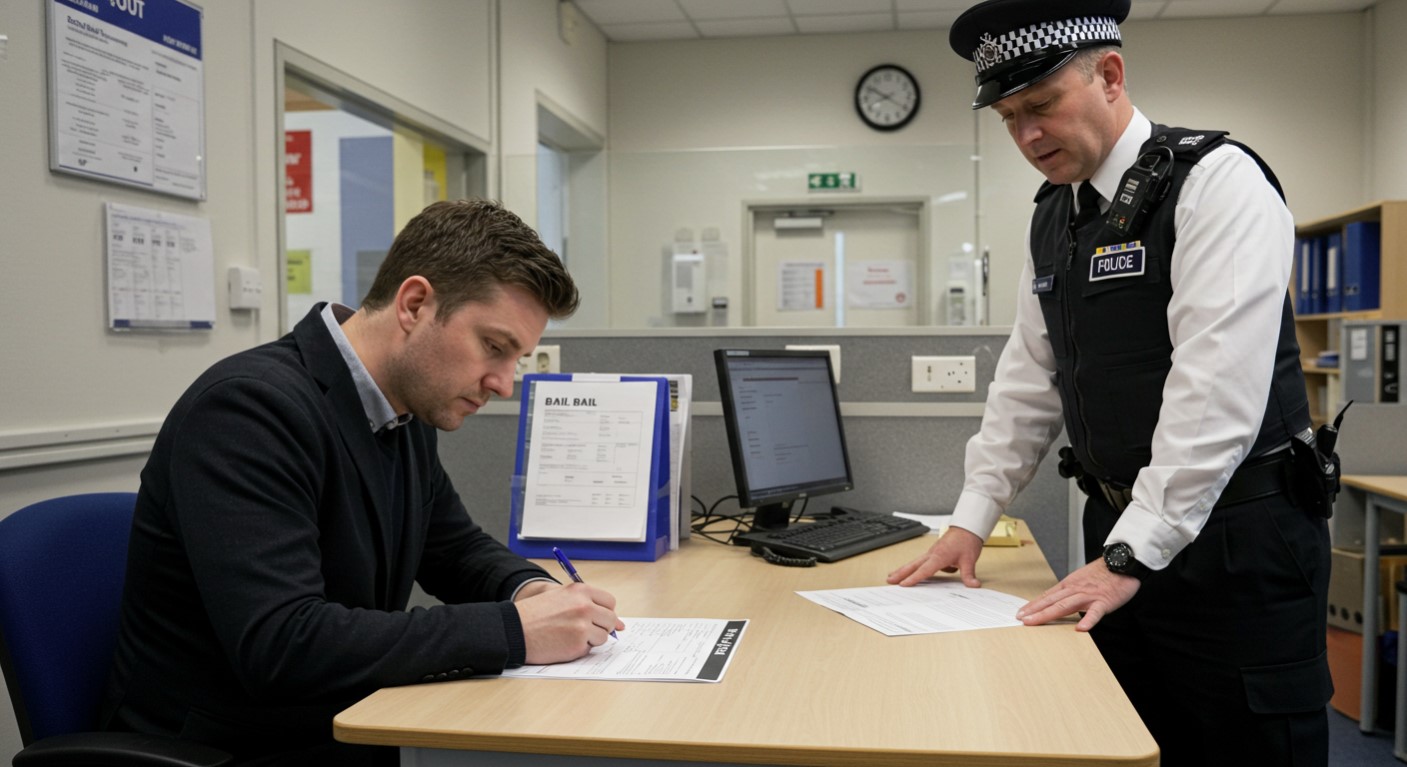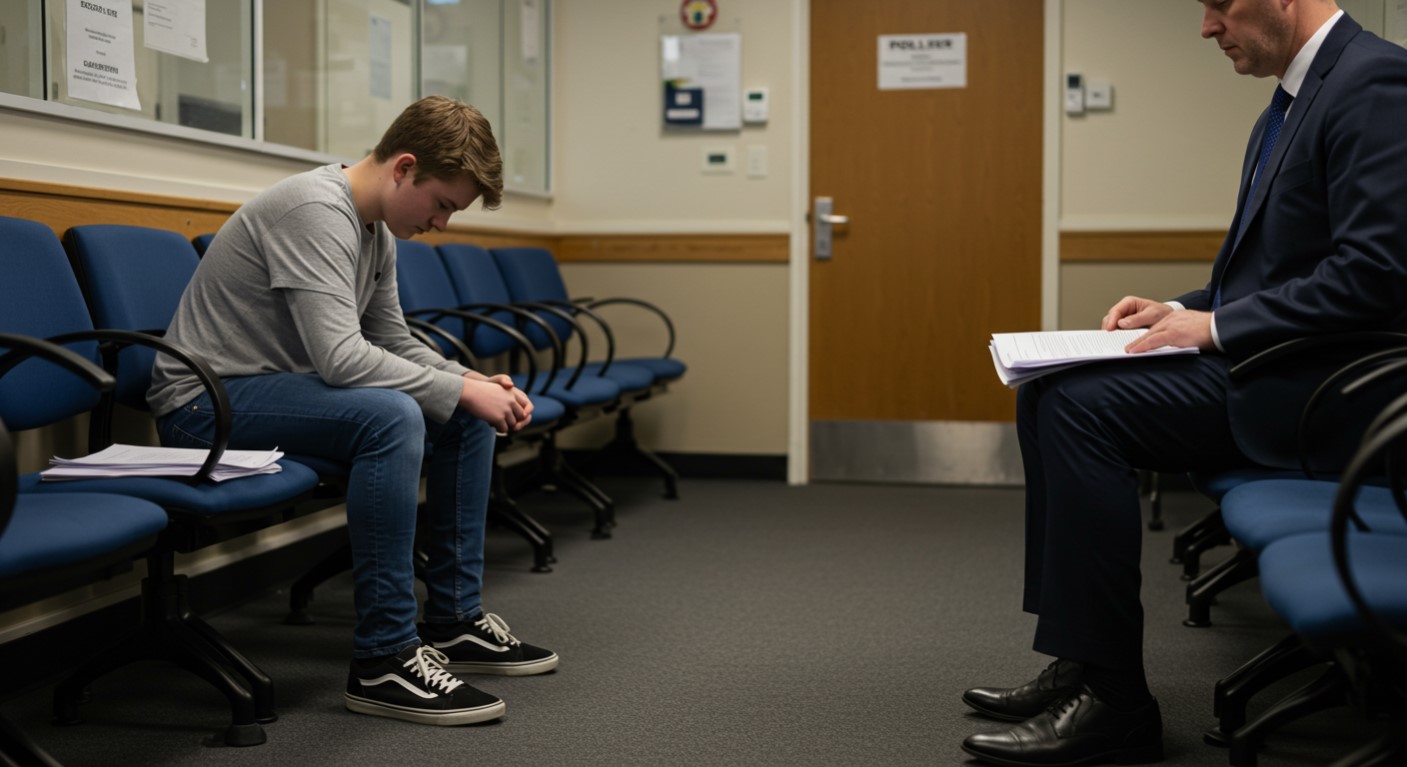What is the Process for Posting Bail in the UK?

What is the Process for Posting Bail in the UK?
When someone is arrested and awaiting trial in the UK, the concept of bail comes into play. Bail is a legal process that allows a person to be released from custody, with certain conditions, while awaiting their court appearance. Understanding the process for posting bail in the UK is crucial for individuals involved in legal proceedings.
The definition of bail refers to the temporary release of an accused person, pending trial, upon the deposit of security (such as a sum of money) or the agreement of a surety. Its purpose is to ensure the person’s attendance at court and to prevent the person from engaging in further criminal activity.
Determining eligibility for bail in the UK involves considering various factors such as the seriousness of the offence, the likelihood of the person committing further offences, the person’s ties to the community, and the risk of the person not showing up for court.
While most individuals are eligible for bail, there are certain exclusions, such as cases involving serious offences, concern for public safety, or risk of witness interference.
The bail process in the UK typically involves several steps. First, the person is arrested and taken into custody. Next, a bail hearing is held where the court determines whether the person should be released on bail and sets the conditions for their release. These conditions may include surrendering one’s passport, regular check-ins with the authorities, or a monetary deposit.
If bail is denied, the person will remain in pre-trial detention until their court appearance. However, in some cases, the person may seek a bail review to re-evaluate their eligibility for release. It is important to note that breaching bail conditions can have serious consequences, including revocation of bail, additional criminal charges, or increased difficulties in obtaining bail in the future.
Understanding the process for posting bail in the UK is crucial for individuals involved in legal proceedings, as it can significantly impact their freedom and ability to prepare for their court appearance.
What is Bail?

Bail, a pivotal aspect of the legal system, holds the power to determine one’s temporary freedom or continued confinement.
Definition of Bail
Bail is a legal arrangement where a person who has been charged with a crime is temporarily released pending their trial. During this period, the accused agrees to abide by certain conditions set by the court in exchange for their freedom.
The primary goal of bail is to ensure that the accused appears for their trial and does not pose a threat to society. Several factors, including the seriousness of the offence, the individual’s criminal history, and the likelihood of them attempting to escape, are taken into account when determining whether to grant or deny bail.
In the event that bail is refused, the accused will be held in pre-trial detention until their trial takes place. It is important to note that failing to comply with the set bail conditions can have severe consequences, such as arrest or the cancellation of bail.
Purpose of Bail
The purpose of bail is to ensure that individuals charged with a crime attend their court hearings while awaiting trial. It allows them to be released from custody temporarily, provided they meet certain conditions. Bail serves several purposes, including:
1. Presumption of innocence: The purpose of bail is to uphold the principle that individuals are innocent until proven guilty. It allows defendants to retain their freedom while their case is pending.
2. Avoidance of unnecessary pretrial detention: The purpose of bail is to help prevent individuals from being detained for extended periods before their trial, reducing the strain on the criminal justice system.
3. Rehabilitation and support: The purpose of bail is to provide an opportunity for defendants to maintain stability in their personal lives, seek necessary support, and continue working or attending school.
4. Public safety: The purpose of bail is to strike a balance between the defendant’s rights and the interests of justice. Bail conditions, such as restraining orders or electronic monitoring, can be imposed to ensure the safety of the community while the accused awaits trial.
The purpose of bail is to strike a balance between the defendant’s rights and the interests of justice.
Who is Eligible for Bail in the UK?

Getting released on bail is a crucial step in the legal process, but not everyone is eligible. In this section, we’ll uncover the key factors that determine one’s eligibility for bail in the UK.
Factors Considered for Granting Bail
When determining whether to grant bail in the UK, several factors are considered by the courts. These factors, including the seriousness of the offence, the defendant’s criminal record, their ties to the community, the risk of flight, and the potential danger they pose to the public, are all taken into account.
The courts will also consider any previous failures to appear for court hearings or breaches of bail conditions. These various factors make up the collective criteria that are reviewed when deciding on the granting of bail.
The purpose of bail is to meticulously balance the interests of justice with the rights of the accused. By thoroughly considering these factors, the courts can make an informed decision regarding whether or not to grant bail.
Exclusions from Bail
- Individuals who are considered a flight risk, meaning they are likely to flee the country before their trial, are excluded from being granted bail.
- If a person is seen as a danger to the public and poses a risk of committing further crimes, they will not be eligible for bail.
- Individuals with a history of previous offences, particularly if they have a record of not complying with bail conditions, may be excluded from being granted bail.
- If there is evidence or concern that a person may attempt to tamper with witnesses or obstruct the course of justice, they may be denied bail.
- In cases where the offence is particularly serious, such as murder or terrorism-related charges, bail may be denied to ensure public safety and to prevent the individual from interfering with the ongoing investigation.
How Does the Bail Process Work in the UK?
Arrest and Custody
When it comes to the process of arrest and custody in the UK, there are several important steps that are followed. These steps ensure that individuals are treated fairly and their rights are protected.
- Arrest: The first step in the arrest and custody process is the arrest itself, where a person is taken into custody by the police based on reasonable grounds of suspicion.
- Booking: Once arrested, the person’s personal details, fingerprints, and photograph are taken and recorded as part of the arrest and custody procedure.
- Interview: As part of the arrest and custody process, the police may interview the arrested person to gather information and evidence.
- Custody: After the interview, the arrested person may be held in custody at a police station as part of the arrest and custody process. They have the right to have someone informed of their arrest and consult with legal advice.
- Detention Review: It is an essential step in the arrest and custody process that, if the person is held for more than 24 hours, a review of their detention must take place to ensure it is necessary and lawful.
- Release or Charging: Depending on the evidence and circumstances, the arrested person may be released without charge, charged and released on bail, or charged and held for court as part of the arrest and custody process.
These steps demonstrate the process an individual goes through when they are subject to arrest and custody in the UK. It is important to note that the specific procedures may vary depending on the situation and the seriousness of the alleged offence.
Bail Hearing
During a bail hearing in the UK, the court decides whether to grant or deny bail to a defendant. The hearing occurs after the arrest and custody of the individual. Various factors, including the nature of the offence, the defendant’s criminal history, ties to the community, and flight risk, are taken into account.
Both the prosecution and defence present their arguments, and it is at the judge’s discretion to release the defendant on bail, impose conditions, or entirely deny bail. If bail is refused, the defendant may be held in pre-trial detention until their court proceedings. In specific circumstances, it is possible to seek a bail review.
Conditions of Bail
Conditions of bail are the requirements and limitations that individuals must follow when they are released from custody prior to their trial. These conditions are in place to ensure that the accused person attends court as scheduled and does not pose a risk to public safety.
Common conditions of bail may consist of surrendering travel documents, reporting to a police station, avoiding contact with specific individuals, refraining from alcohol or drugs, and wearing an electronic monitoring device.
Non-compliance with these conditions can lead to consequences such as bail revocation, additional charges, or heightened supervision.
What Happens if Bail is Denied?

Pre-trial Detention
Pre-trial detention refers to the period of time when an individual is held in custody before their trial. In the UK, the decision to detain someone before trial is made based on various factors such as the seriousness of the offence, the likelihood of the defendant fleeing, or interfering with witnesses.
If bail is denied, the defendant remains in custody until the trial. They have the option to seek bail review by presenting new evidence or demonstrating a change in circumstances. It is important to note that pre-trial detention is not punishment, but rather a precautionary measure to ensure the safety of the community and the defendant’s presence at trial.
Seeking Bail Review
Seeking a review of bail in the UK is a legal process that enables individuals to contest a decision that has denied them bail. Once bail has been refused, the person has the option to apply for a bail review in a higher court.
To pursue a bail review, the individual or their legal representative must put forth new evidence, demonstrate a change in circumstances, or point out errors in the initial decision. During the review, the case’s merits will be evaluated to determine whether the original decision was fair and reasonable.
If successful, the person may obtain bail or have their bail conditions altered. The act of seeking a bail review grants individuals an opportunity to assert their right to freedom while awaiting trial.
What Are the Consequences of Breaching Bail Conditions?

What Are the Consequences of Breaching Bail Conditions?
When someone breaches their bail conditions in the UK, they may face several consequences. These consequences include:
Arrest: Breaching bail conditions can lead to an immediate arrest by the police.
Prosecution: The individual may face prosecution for failing to comply with the conditions set by the court.
Revocation of Bail: The court has the authority to revoke the person’s bail and remand them in custody until their trial.
Additional Conditions: The court can impose stricter or additional conditions on future bail applications.
Increased Penalties: If the person is ultimately found guilty of the original criminal offence, the breach of bail conditions can result in harsher penalties.
Frequently Asked Questions
What is the process for posting bail in the UK?
The process for posting bail in the UK involves the following steps:
- 1. Determine eligibility: Bail may not be granted to individuals with previous convictions, a history of violating bail conditions, a likelihood of not attending the next hearing, or those deemed a potential risk to commit another crime while on bail.
- 2. Bail application: Bail can be granted at a police station after being charged or at a court hearing. Defendants may request bail during these proceedings.
- 3. Bail conditions: If granted bail, conditions may be imposed, such as living at a specific address, not contacting certain individuals, surrendering passports, or reporting to a police station regularly.
- 4. Compliance and consequences: Failure to comply with bail conditions can result in re-arrest and imprisonment until the court hearing.
- 5. Review and continued imprisonment: The court may impose different conditions or continue imprisonment until the trial begins, depending on the circumstances of the case.
What are the factors considered by the Crown Prosecution Service (CPS) when making bail decisions?
The CPS considers various factors when making bail decisions:
- 1. Risk assessment: The CPS assesses the risk posed by the defendant to victims, the public, and the course of justice.
- 2. Case management quality: Bail decisions are seen as a benchmark for the quality of CPS’s case management and preparation.
- 3. Comprehensive information: Prosecutors must provide comprehensive information to the court and recommend the appropriate course of action regarding bail.
What is police bail, and when is it imposed?
Police bail is the temporary release of a suspect from custody before a court hearing. It can be imposed in the following situations:
- 1. Insufficient evidence: When there is insufficient evidence to charge a suspect, police bail may be imposed while further investigation is necessary or a charging decision is made by the Crown Prosecution Service (CPS).
- 2. Pre-charge bail restrictions: Pre-charge police bail is subject to conditions and time restrictions to ensure it is “necessary and proportionate” according to the law.
Under what circumstances can bail be opposed?
Bail can be opposed in certain circumstances, including:
- 1. Risk factors: Bail may be opposed if there is a risk of the defendant committing further offences, causing harm to witnesses, perverting the course of justice, or posing a threat to public order.
- 2. Breach of conditions: If a defendant has a history of not adhering to bail conditions, it increases the likelihood of bail being opposed.
- 3. Serious offences: Bail can be opposed when the defendant is charged with serious offences like fraud or when there is a high risk of flight or committing another crime.
What happens if a defendant fails to surrender or breaches bail conditions?
If a defendant fails to surrender or breaches the conditions of their bail, the following consequences may occur:
- 1. Re-arrest and imprisonment: Failure to comply with bail conditions can lead to re-arrest and imprisonment until the court hearing.
- 2. Reconsideration of bail: The court may reconsider the decision to grant bail and impose stricter conditions or continue imprisonment until the trial begins.
Notice: Informational Content Disclaimer
The content provided on this website, including articles, blog posts, and other informational materials, is intended for general informational purposes only. It is not intended as, and should not be considered, legal advice.
Visitors to this website should be aware that the information presented here is not a substitute for seeking legal advice from a qualified solicitor or legal professional. Each individual's legal situation is unique, and the information provided may not be applicable to specific circumstances.
If you require legal advice or have specific legal questions, we encourage you to contact us directly. Our experienced team of solicitors is here to assist you with your legal needs and provide tailored advice to address your concerns.
Please be advised that any communication through this website, including the use of contact forms or email, does not create a solicitor-client relationship. Confidential or time-sensitive information should not be sent through this website. To establish a solicitor-client relationship and discuss your legal matters in detail, please contact us for a consultation.
We strive to provide accurate and up-to-date information, but we make no representations or warranties regarding the accuracy, completeness, or suitability of the information contained on this website. We shall not be liable for any reliance placed on the information provided herein.
Thank you for visiting our website. We look forward to the opportunity to assist you with your legal needs.




